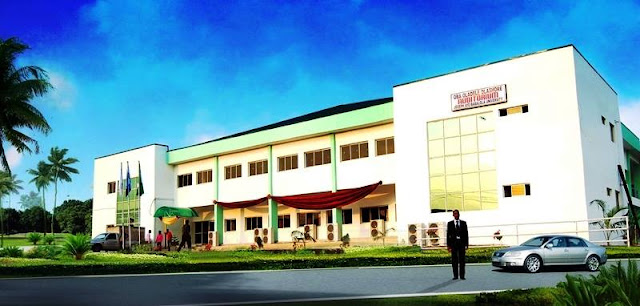
Scholars drawn from across research institutions in sub-Saharan Africa recently converged on the University of Lagos (UNILAG) to deliberate on the future of higher education.
The three-day event themed: ‘Re-imagining the future of higher education in Africa, was the fourth international biennial conference of African Research Universities Alliance (ARUA), comprising 17 universities from 10 African countries, and aimed at providing a platform for research collaborations among tertiary institutions.
Vice Chancellor, Makerere University, Kampala, Uganda, Prof Barnabas Nawangwe, disclosed that more researchers are needed in Africa to help combat poverty and other challenges.
Nawangwe, who is the Board Chairman of ARUA, said for the region to be free from the several problems stemming from lack of quality education, African universities must move faster and be more intentional in increasing the number of its researchers.
He said the only solution to overcome Africa’s problem of abject poverty and other challenges is to expand the number of researchers in the region.
He said: “Education, we believe, is the key to changing Africa for the better. The region has experienced a number of setbacks, but in the last two decades, the number of African universities has increased from 200 to over 2,500.”
He noted that in the last three years, ARUA has grown and is now in a position to spearhead the continent’s necessary transformation.
The don lamented that the continent’s rapid population expansion was one of its main problems.
“Thus, new inquiries arise. What are our plans for feeding so many people? How do we ensure that the populace is healthy? How do we make sure that, despite Africa’s growing population, the continent’s enduring conflicts truly lessen?
“It’s important for researchers to keep in mind that their works directly impact the fight against poverty in Africa. That’s encouraging because it suggests our schools and scientists will spearhead the change we need.
“I am pleased that the centres of excellence we established are gaining traction and maturing into thriving hubs of knowledge production,’ he added.
Director of the School of Oriental and African Studies (SOAS), at the University of London, Prof. Adam Habib, who is the keynote speaker, emphasised the importance of building a human resource base and higher education infrastructure.
For this, he noted that universities across Africa, Asia, Europe, and North America would need to develop a new kind of fair collaborations.
To handle the demands of national development and the global challenges of the present, Habib said we must cultivate the expertise and networks of the future.
UNILAG Vice Chancellor, Prof. Folashade Ogunsola, said Africa possessed the potential to reach her full development, cultural, and peace potential, and to create thriving, inclusive, and affluent societies.
Ogunsola said ARUA has been instrumental in refocusing attention on the existential issue that has plagued the region for a long time.
She said the institution’s research and development culture places a premium on tackling pressing societal issues, especially within the context of international agreements, as part of a larger effort to position itself as a “future-ready” institution.
“In order to put our educational institutions on the right track for the future of knowledge, we need to reimagine a classroom without walls in which we are all co-learners; a university that is capable of convening various publics in new forms of assemblies that become points of convergence and platforms for the redistribution of different kinds of knowledge.
“It is, therefore, my fervent view that universities have both educational and social functions.
“Knowledge institutions play crucial roles in horizon scanning, clarifying, and delineating limits for emerging technologies and new areas of investigation, as well as in coordinating evidence collection across disciplines and dissemination across sectors.
“University students have the opportunity to create the future they want. We need to envision a desired future for Africa and define the measures required to produce a new generation of African thinkers and doers to get there,” Ogunsola said.






